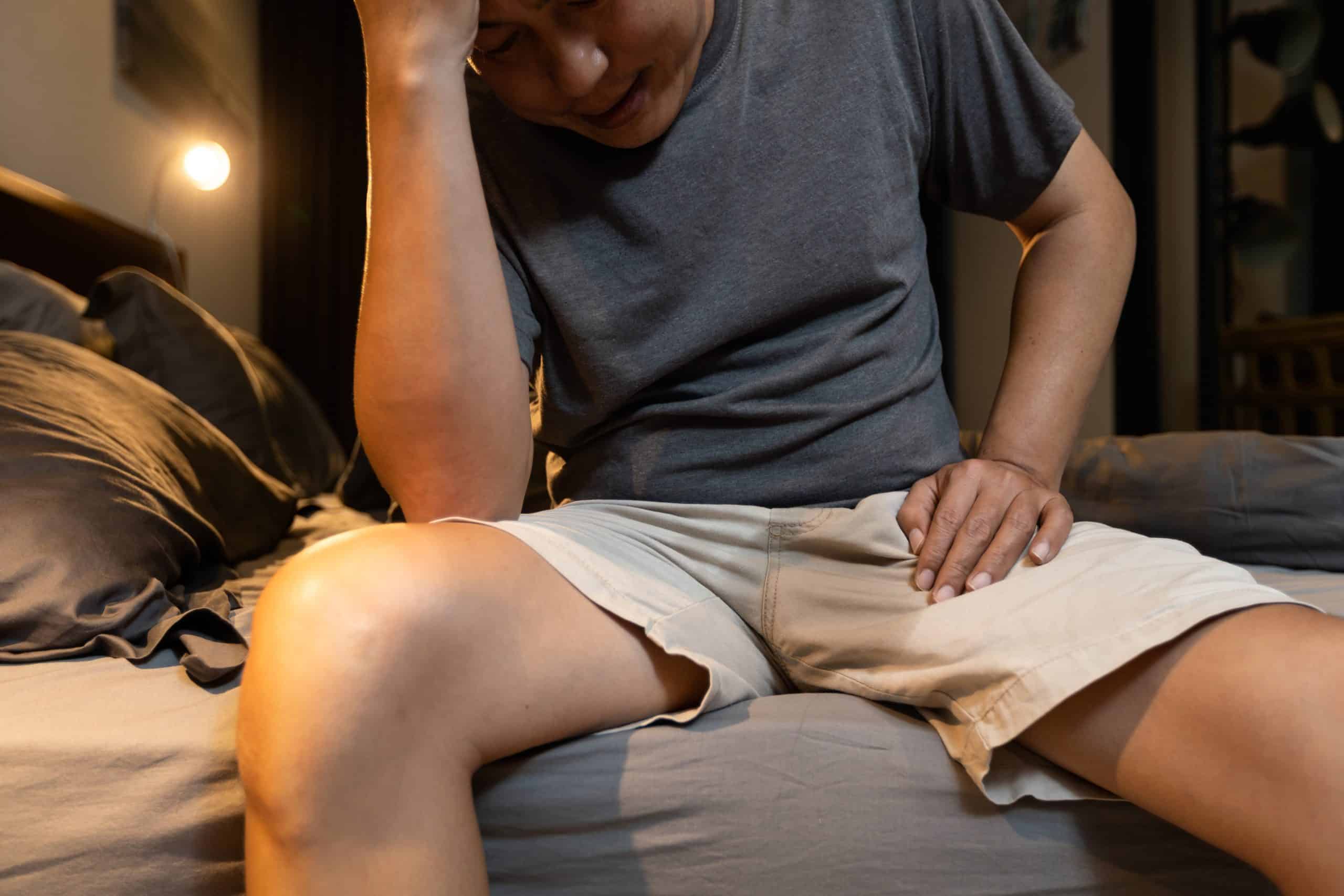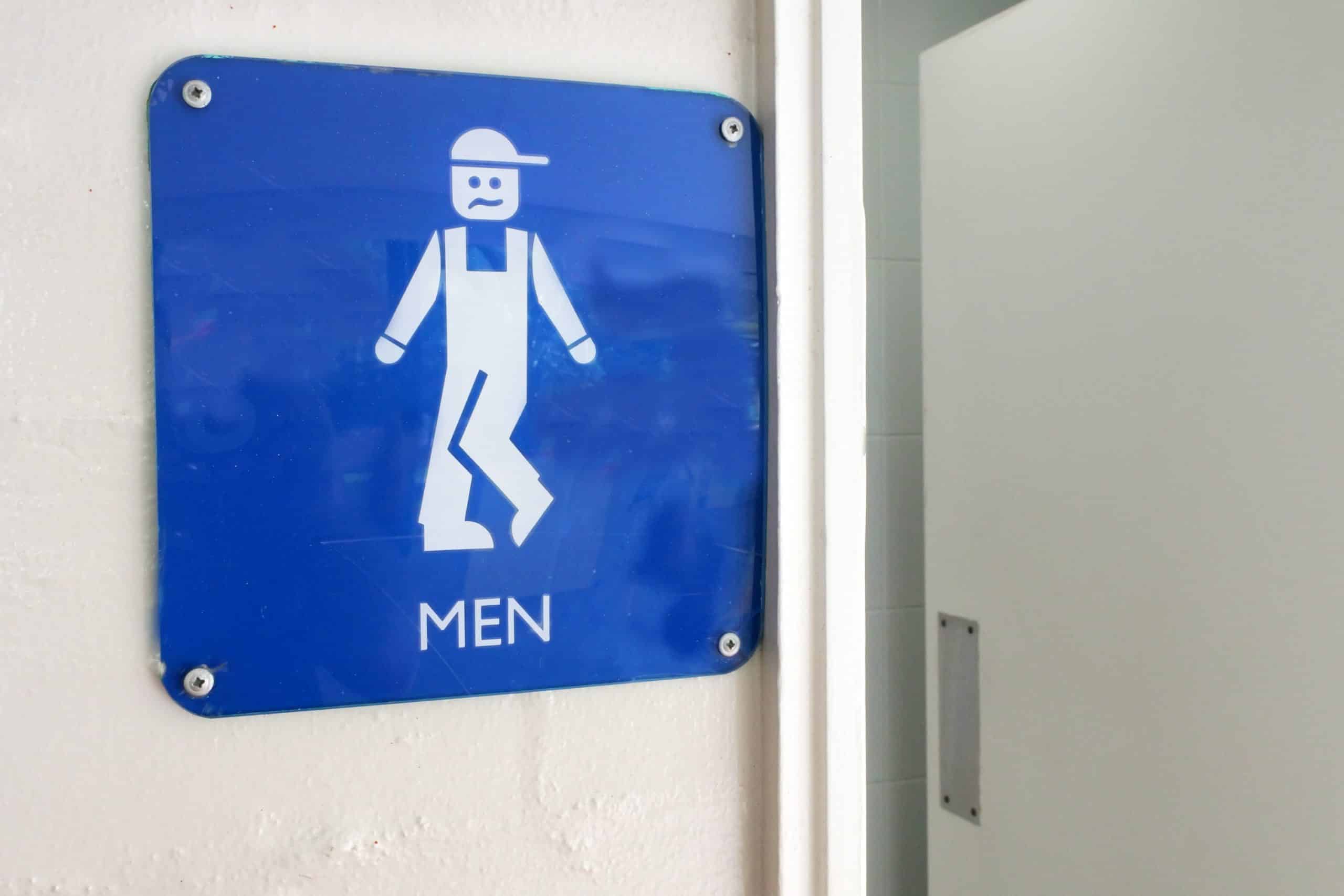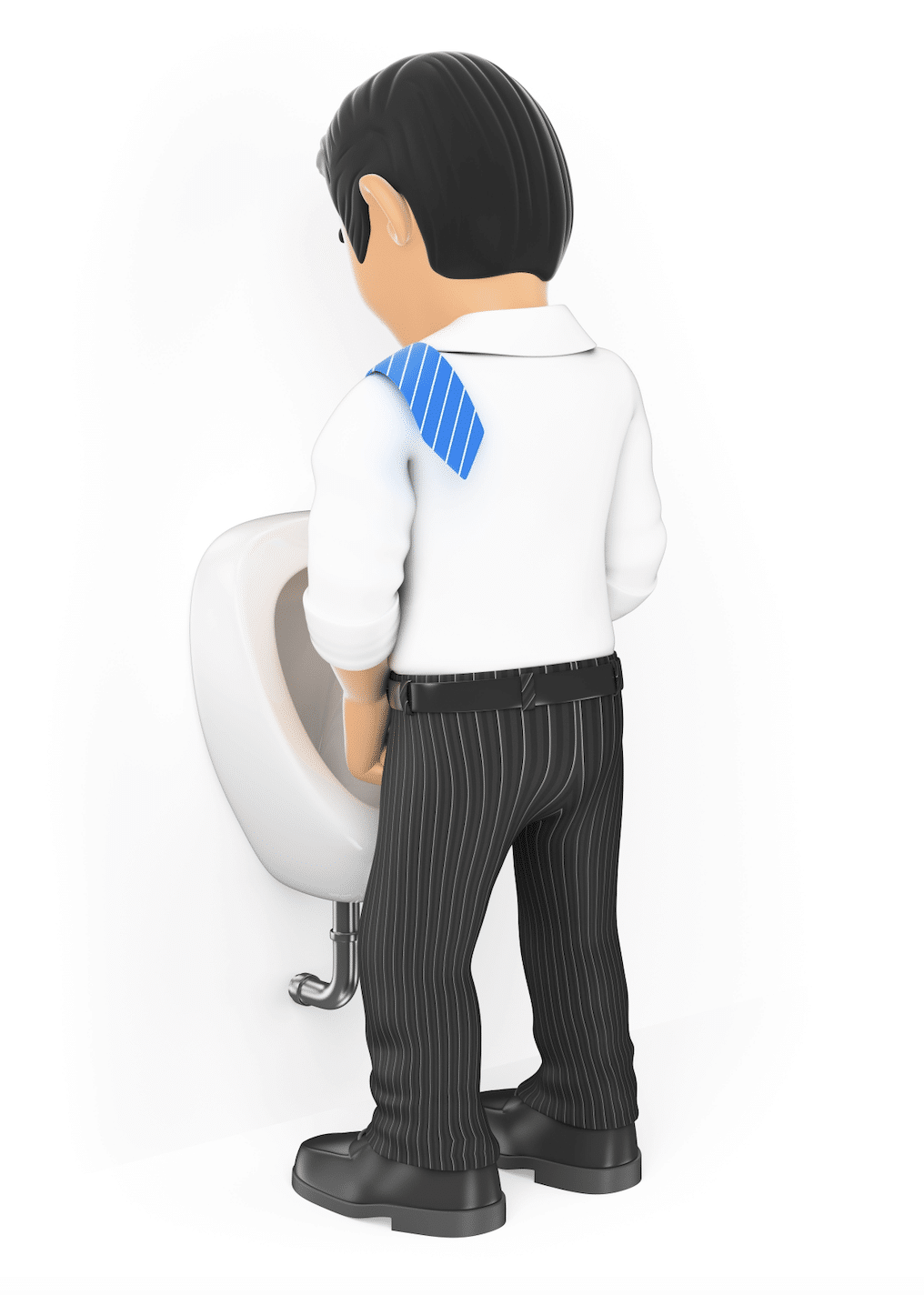Urinary Urgency & Frequency in Florida
Regain Control, Rediscover Comfort
Navigating the Rush
Understanding Urinary Urgency & Frequency
Imagine being in the middle of an important presentation or engrossed in a movie at the theatre, and suddenly, an overwhelming urge to urinate hits. Before you know it, this urge dictates your schedule, interrupting moments, cutting short outings, and even robbing you of a good night’s sleep. This is the reality for many men facing the challenges of urinary urgency and frequency.
Many men feel a sudden and overwhelming need to urinate, often multiple times an hour; affecting their professional life, personal relationships, and even sleep patterns.
What is Urinary Urgency & Frequency?
Urinary urgency is a sudden, compelling need to urinate, making it difficult to delay using the toilet.
Frequency refers to urinating more often than usual, without an increase in the total volume of urine passed. In men, these symptoms can be particularly concerning, often linked to prostate problems or other underlying medical conditions that require attention.
Symptoms of Urinary Urgency & Frequency
For men, understanding and addressing urinary urgency and frequency is vital. It’s more than just an inconvenience; it could be a sign of underlying medical issues. If these symptoms resonate with your experiences, it’s essential to get a proper diagnosis and appropriate care.
- Immediate and Overpowering Urge to Urinate: This sudden, intense need to pass urine can be difficult to control, and in some cases, may lead to unintentional leakage.
- Frequent Visits to the Restroom: Even if there isn’t much urine to pass, the sensation leads to more frequent bathroom breaks, often more than 8 times in a day.
- Nighttime Disturbances (Nocturia): Waking up multiple times at night to urinate, disrupting continuous rest.
- Feeling of Incomplete Emptying: After urinating, there’s a lingering sensation that the bladder hasn’t fully emptied.
- Involuntary Leakage (Urge Incontinence): The sudden urge can sometimes be followed by involuntary loss of urine before one can reach the toilet.
- Decreased Urine Volume: Despite the constant feeling of needing to go, the actual amount of urine may be minimal.
Functional and Regenerative Medicine Perspective on Urinary Urgency & Frequency Causes
Functional and regenerative medicine looks at the body as an interconnected system, focusing on identifying root causes and using natural, often non-invasive, treatments to address disorders. When we delve into the causes of urinary urgency and frequency in men from this perspective, we uncover various underlying imbalances and triggers.
Hormonal Changes
Prostate Growth: As men age, the prostate often enlarges due to shifts in hormone levels, especially testosterone and dihydrotestosterone (DHT). An enlarged prostate, or benign prostatic hyperplasia (BPH), can press against the urethra, causing urinary disturbances.
Insulin Resistance: Insulin resistance can lead to overactive bladder symptoms. Chronically high insulin levels can affect kidney function, leading to increased urine production.
Chronic Inflammation
Inflammation can affect the bladder and prostate. Dietary choices, chronic infections, environmental toxins, and allergies can all contribute to systemic inflammation, which in turn can irritate the urinary system.
Pelvic Floor Dysfunction
The muscles supporting the bladder and urethra, known as the pelvic floor muscles, can become weak or imbalanced. Factors like chronic constipation, history of surgical procedures in the pelvic region, or sedentary lifestyle can contribute. Weak pelvic muscles may not support bladder function correctly.
Neurological Factors
Functional medicine often explores the health of the nervous system. Issues like neuropathy (often seen in conditions like diabetes) can interfere with the signals between the brain and bladder.
Environmental Toxins
Chronic exposure to certain chemicals and toxins can affect bladder function. For instance, heavy metals like lead or certain pesticides might irritate the bladder lining, leading to urgency and frequency symptoms.
Gut Dysbiosis and Urinary Tract Infections (UTIs)
An imbalance in the gut microbiome can influence the urinary system. Bad bacteria, if translocated to the urinary tract, can cause infections leading to urgency symptoms.
Cellular Aging and Decline
From a regenerative medicine perspective, the decline in the function of cells with age or due to oxidative stress can reduce the efficiency of the bladder muscle cells, leading to urgency and frequency.
Emotional and Psychological Factors
Chronic stress, anxiety, and past traumas can manifest as physical symptoms in the body. The bladder can become hypersensitive in response to these emotional triggers, leading to urgency.
Conclusion
In functional and regenerative medicine, understanding the root cause is paramount. For men experiencing urinary urgency and frequency, a thorough assessment involving history, lifestyle, diet, and other factors is essential to pinpoint the underlying causes and tailor a personalized healing approach.
Functional and Regenerative Medicine vs. Traditional Urology Care
When faced with urinary urgency and frequency, many men seek the expertise of traditional urologists. While this approach can provide relief, functional and regenerative medicine offers a holistic alternative, targeting the root cause rather than just the symptoms. Here’s a comparative breakdown of these two approaches:
Traditional Urology Care:
- Pharmacological Treatments: Traditional care often leans heavily on medications to manage symptoms. Alpha-blockers, anticholinergics, and 5-alpha reductase inhibitors are common prescriptions for men with urinary symptoms, particularly from an enlarged prostate.
- Surgical Interventions: For issues like an enlarged prostate causing obstruction, surgical procedures such as transurethral resection of the prostate (TURP) might be recommended.
- Diagnostic Tests: Urodynamic testing, cystoscopy, and imaging are often used to diagnose the cause of urinary symptoms.
- Focus on Symptomatic Relief: Traditional urology might primarily aim to alleviate the discomfort and inconvenience of urinary symptoms without necessarily addressing the deeper underlying cause.
Functional and Regenerative Medicine:
- Holistic Assessment: This approach involves a comprehensive evaluation of the patient’s overall health, lifestyle, dietary habits, environmental exposures, and emotional well-being.
- Dietary and Lifestyle Interventions: Recognizing the role of inflammation, gut health, and hormonal balance in urinary health, functional medicine may prescribe specific diets, probiotics, and lifestyle changes.
- Cellular and Tissue Regeneration: Regenerative medicine taps into the body’s natural healing abilities. Treatments like platelet-rich plasma (PRP) injections or stem cell therapies might be explored to rejuvenate tissues of the urinary tract.
- Natural and Bioidentical Hormones: To address hormonal imbalances or inflammatory issues, natural or bioidentical hormone replacement therapies and supplements might be recommended.
- Focus on Root Cause: The aim is not just to alleviate symptoms but to identify and address the root cause of the problem, ensuring long-lasting relief and overall well-being.
- Personalized Care: Recognizing that every individual is unique, treatments are tailored based on one’s specific health history, lifestyle, and other factors.
- Broadened Diagnostic Lens: Beyond just traditional tests, functional medicine might evaluate hormone levels, gut health, dietary habits, and even psychological factors that could contribute to painful ejaculation.
- Anti-inflammatory Strategies: Recognizing that systemic inflammation can be a significant player, dietary modifications, nutritional supplements, and other strategies might be employed to reduce inflammation.
- Regenerative Techniques: This involves harnessing the body’s ability to repair and rejuvenate itself. Techniques like stem cell therapies, PRP injections, or other regenerative treatments might be considered to address tissue or nerve damage that could be causing pain.
- Mind-Body Connection: Recognizing the profound connection between emotional health and physical symptoms, functional medicine might incorporate therapies like counseling, meditation, or stress-reducing techniques as part of a comprehensive treatment plan.
Functional Medicine Tools:
- Comprehensive assessment to understand the patient’s entire health picture including specialty labs.
- Dietary and lifestyle changes tailored to the patient’s lab results.
- Use of natural supplements to target inflammation and promote healing.
- Stress management and physical therapies.
- Sleep optimization and restoration
- Personalized treatment plans that evolve with the patient’s progress.
- IV Nutrient/Ozone/UBI “TRIFECTA” Therapy
- EBOO, an oxygenation and ozonation process enhances the body’s immune response, reduces inflammation, and promote healing.
- Hormone replacement therapy (TRT)
- Nutritional therapy to optimize cellular health
- Detoxification to rid the body of potential carcinogens
- Stress management, as chronic stress can suppress the immune system
- Methylene Blue for urinary tract and prostatitis acts as a mild antiseptic, reducing bacterial activity and inflammation in the urinary tract. And its anti-inflammatory effects aid in alleviating symptoms of prostatitis
Regenerative Medicine Tools:
- Ozone injections to promote healing directly in the prostate tissue.
- PEMF (Pulsed Electromagnetic Field Therapy) to enhance healing and reduce inflammation.
- Neural therapy for chronic pelvic pain syndromes
- Custom antibiotic, antiviral, anti-fungal and anti-inflammatory prostate injection designed based on lab data collection.
- LI-ECSW (shockwave) to correct tight pelvic floor muscles and to stimulate tissue regeneration and blood flow
- Platelet Rich Plasma Prostate Injections
- Exosome and Stem Cell IV Infusions
- IV Chelation Therapy for removal of toxic burden
- Peptides specifically for healthy prostate tissue regeneration, decrease of inflammation, and hormone optimization.
Conclusion:
While traditional urology care offers valuable solutions based on decades of medical science and practice, functional and regenerative medicine provides a fresh, holistic perspective. The latter focuses on the interconnected nature of body systems and aims to treat the root causes rather than just alleviating the symptoms.
For individuals grappling with painful ejaculation, understanding these distinctions can be pivotal. It offers them a chance to make informed decisions, whether they opt for the tried-and-tested paths of traditional care, the holistic avenues of functional medicine, or a blend of both. The ultimate goal remains the same: restoring comfort, health, and joy in one’s intimate life.
Seeking relief from Urinary Urgency and Frequency?
“Through our unique approach, we explore a wide range of factors to determine what is causing
your prostate to act up.”
Interested in Improving Your Prostate Health?
How To Get Started

Choose an Assessment Plan
Start the process by determining your current
wellness status.

Schedule a Consultation
Meet with an expert practitioner to review the results of you assessment and discuss your customized treatment plan.

Begin Your Wellness Journey
It's time to get back to balance and experience optimal wellness and quality of life




